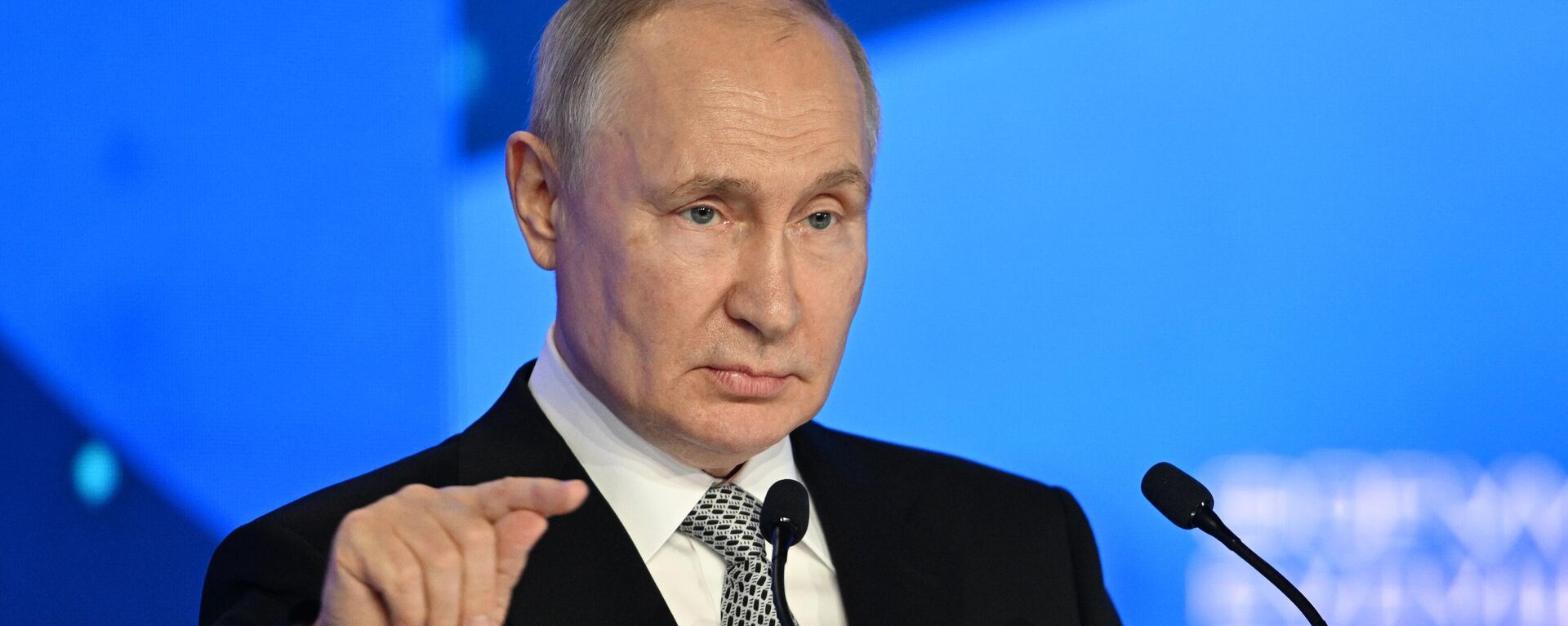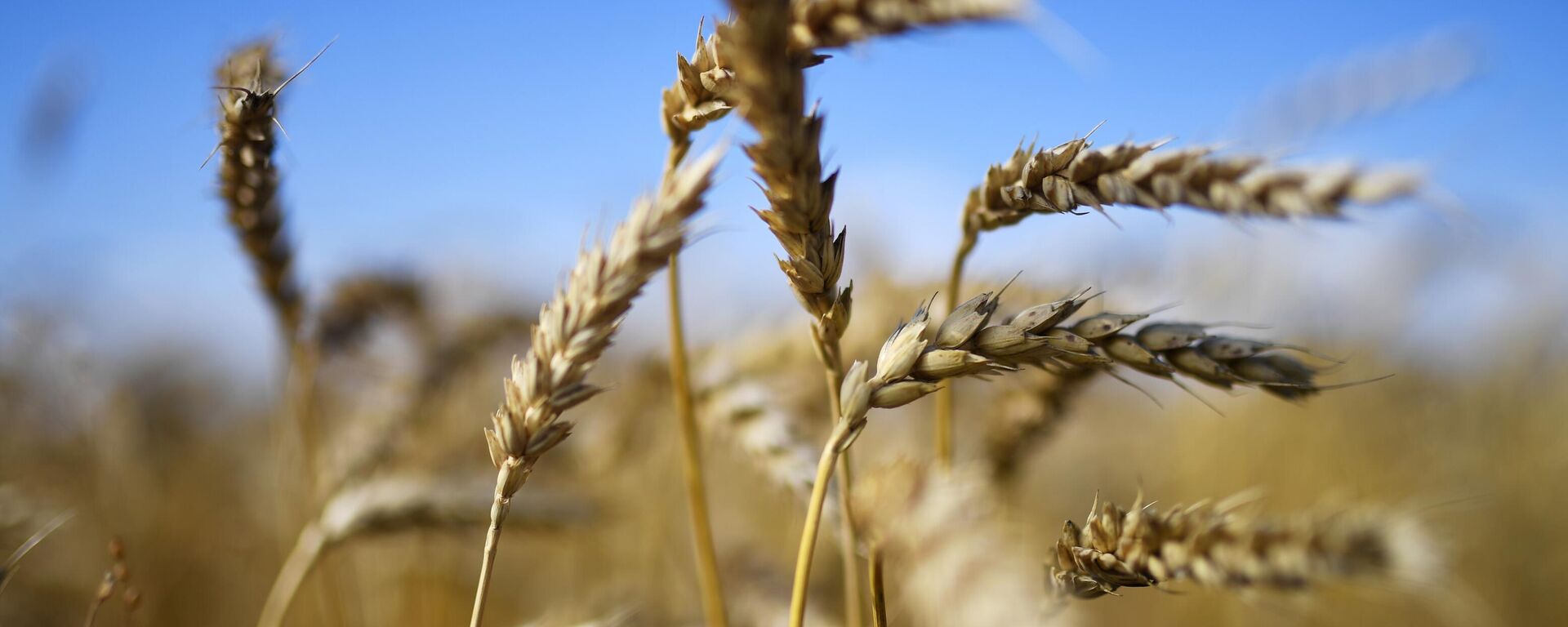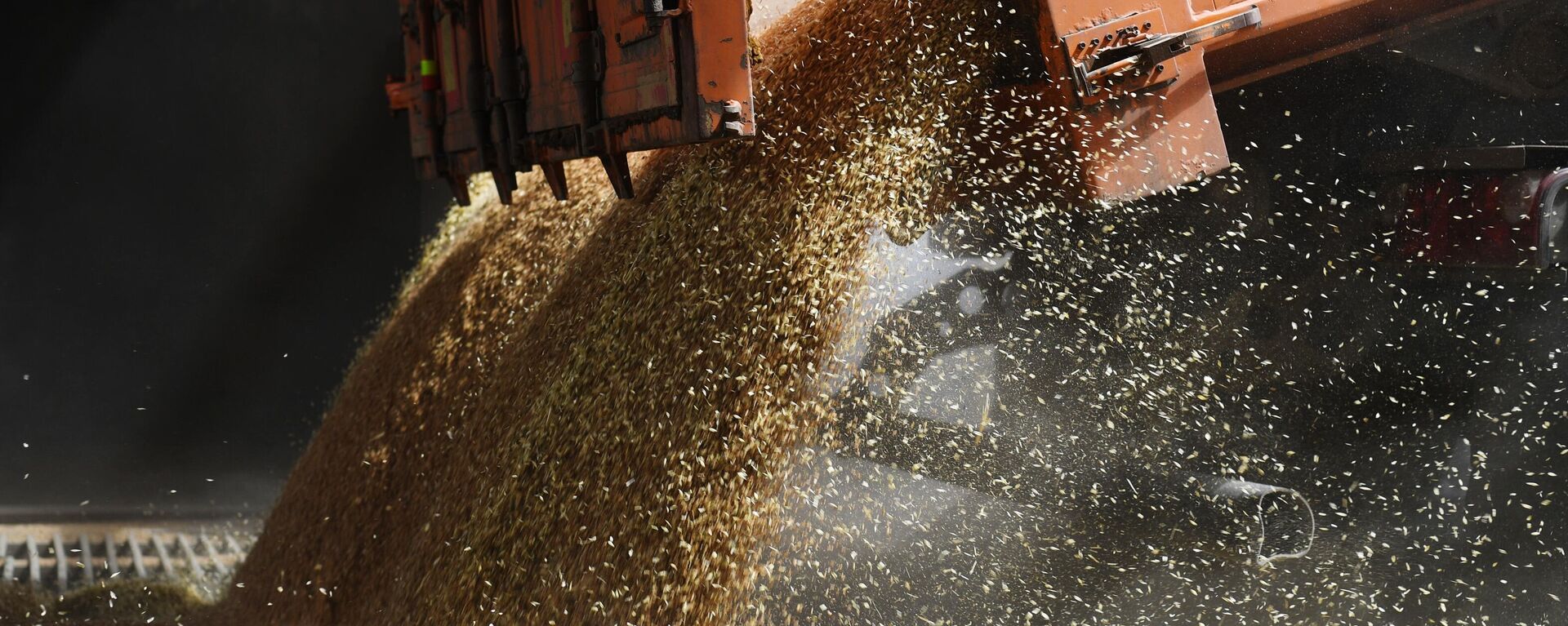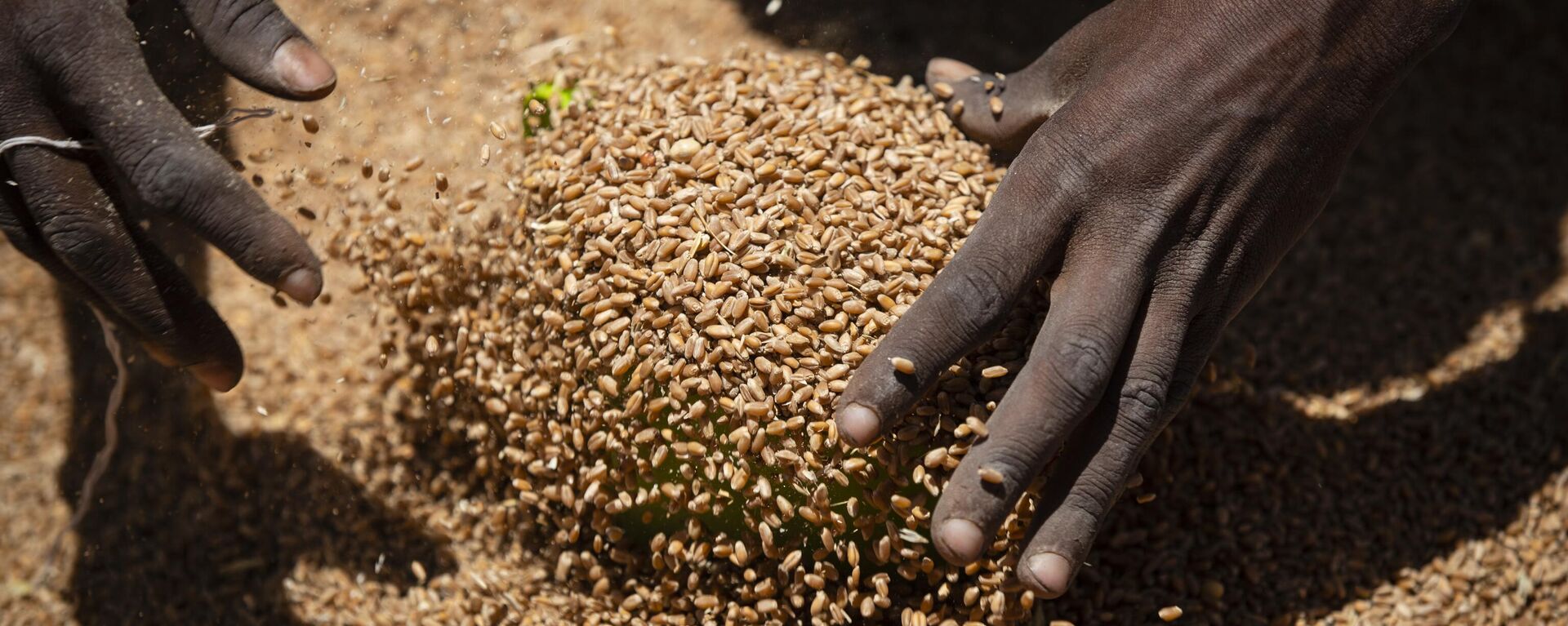Clock Running Out on Black Sea Grain Deal: What are Prospects for Its Extension?
16:18 GMT 15.07.2023 (Updated: 11:38 GMT 17.07.2023)
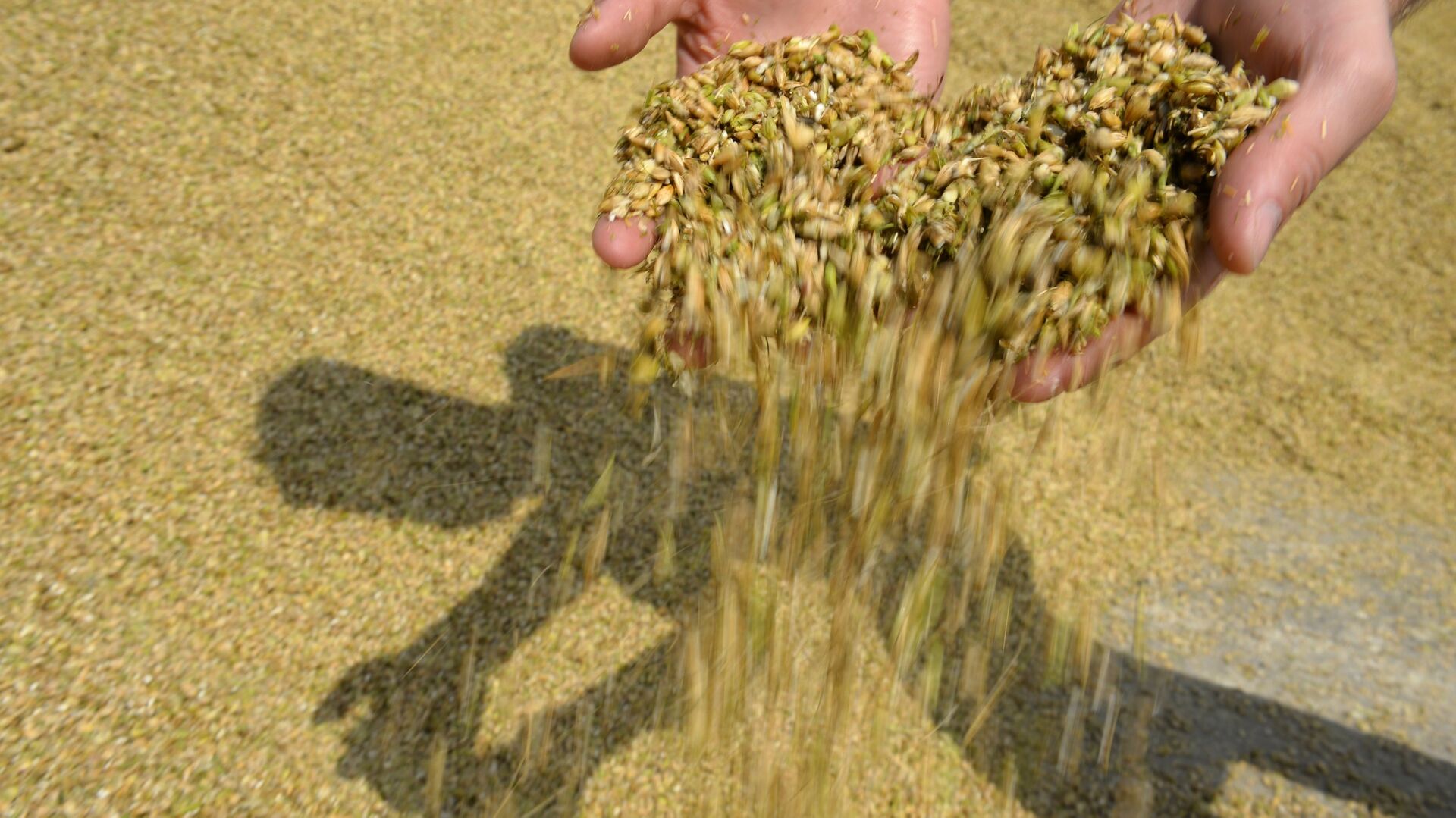
© Sputnik / Pavel Lisitsyn
/ Subscribe
Longread
The Black Sea Grain Initiative – the 2022 agreement facilitating the export of Ukrainian grain through Russian-controlled waters in the Black Sea, is set to expire Monday. Why has Moscow threatened to pull out, and what are the chances of the deal’s extension? Sputnik reached out to a trio of economics and international affairs experts to find out.
“As for the conditions under which we had agreed to ensure the safe export of Ukrainian grain, yes, there were clauses within this agreement with the UN under which Russian interests had to be taken into account, including logistics, insurance, the transfer of funds related to payment for our agricultural goods, and many other points,” Russian President Vladimir Putin said in an interview with Russian television on Thursday.
“Nothing, and I would like to emphasize this - nothing has been done at all in this regard. It’s been a one-sided relationship,” Putin said. “Despite this, we voluntarily extended this so-called deal many times. Many times. But listen: enough is enough.”
The Russian president warned that if Moscow’s negotiating partners once again resort to making empty promises, Russia will suspend its participation in the grain deal on July 17. At the same time, Putin stressed, if the commitments made to Russia are met at some later date, Russia would be ready to resume its participation “immediately.”
What is the Black Sea Grain Initiative?
Signed in July 2022 via mediation with the United Nations and Turkiye, the Black Sea Grain Agreement facilitated a safe maritime corridor for vessels carrying food and fertilizers from Black Sea ports – particularly Ukrainian grain through maritime areas controlled by the Russian Navy.
Russia agreed to the deal for two basic reasons:
Assurances by Western countries to facilitate the export of Russian food and fertilizers to Europe and third countries by lifting or easing constraints such as import limitations, secondary sanctions threats and banking restrictions.
Dire warnings and moral pressure from the UN that Moscow’s refusal to enable agricultural exports from Ukraine – which along with Russia is a major global producer of foodstuffs like wheat, barley, maize and sunflower oil, would threaten to spark famines among the world’s poorest countries.
Insult, Meet Injury
A year on, serious Western restrictions on Russian agricultural exports remain in place, with exporters facing difficulties ranging from the ability to obtain shipping insurance and ship maintenance services, to problems in the banking sector – with Russian producers still cut off from global financial flows. Ukrainian saboteurs undermined a key artery used by Russia to ship ammonia, a key ingredient in nitrogen fertilizers, by blowing up a section of the Togliatti-Odessa ammonia pipeline.
As for the moral argument – fulfilling the needs of poor countries, this too soon proved somewhat of a deception, with Putin pointing out last fall that as little as 3-5 percent of the supplies shipped from Ukraine were actually going to needy nations, while 35 percent ended up in the European Union, and another 34 percent staying in Turkiye.
In his remarks Thursday, Putin once again recalled the pressure which had been placed on Moscow over the past year, and claims by Western countries that the military operation in Ukraine was to blame for rising global food and fertilizer prices.
“They decided to blame everything on Russia, to lay one’s own fault at someone else’s door. We have absolutely nothing to do with it,” Putin said, recalling that the rise in prices actually began during the Covid crisis, when wealthy Western nations kicked off a money-printing spree and began to “rake in food from the world market with a shovel,” putting poor countries “in a very difficult position.” Unilateral sanctions against Russia only served to exacerbate the crisis, Putin said.
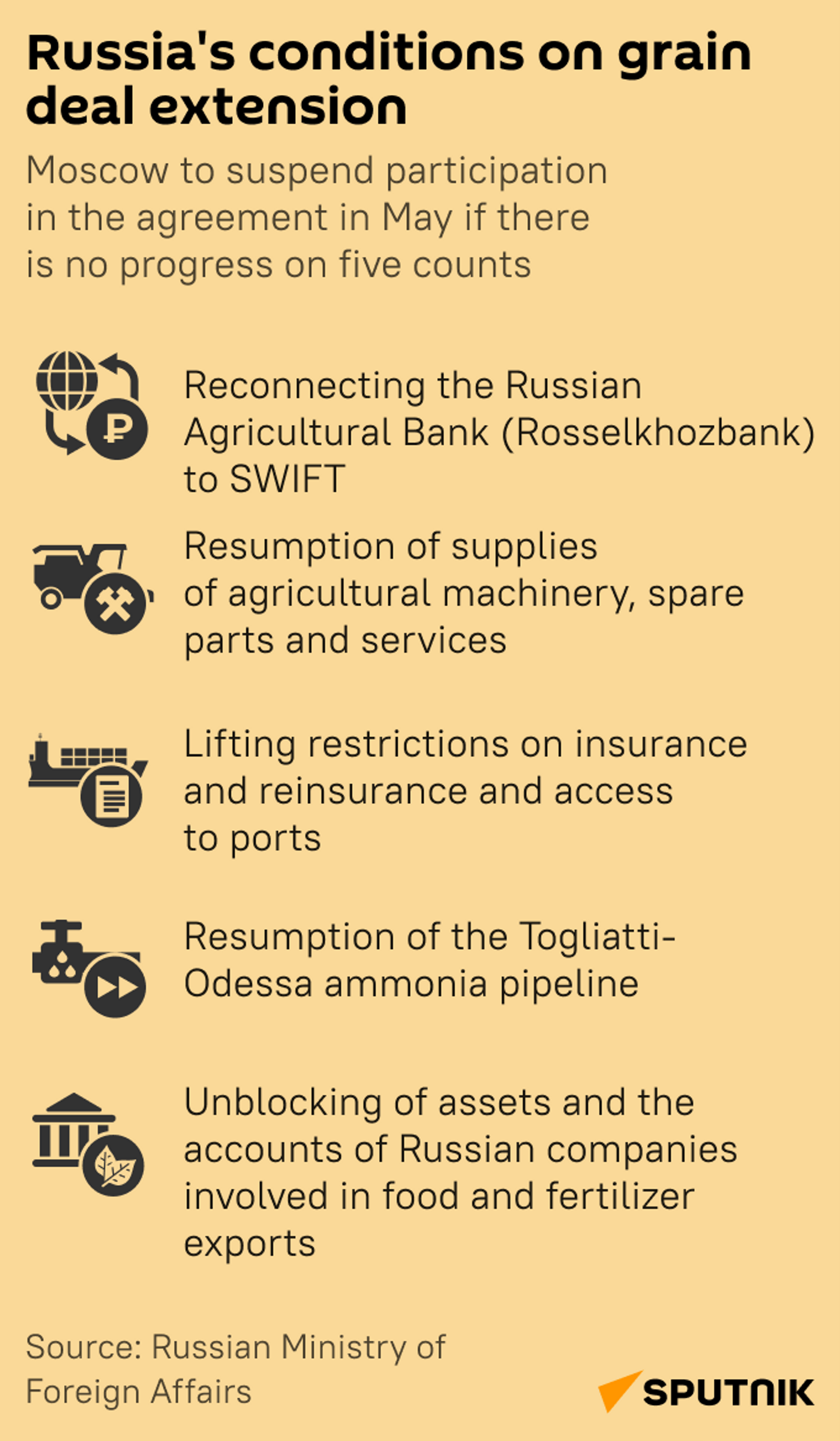
Russia's conditions on grain deal extension
© Sputnik
On Saturday, citing UN data, Russian media calculated that the EU remains the main beneficiary of the Black Sea grain deal, with 12.4 million tons of grain, or 38 percent of all supplies, going to EU countries, followed up by Turkiye, which has taken in 9.9 million tons, and China, which accounts for 7.96 million tons. Individual leading importers among EU countries include Italy (2.1 million tons), Spain (2.06 million tons), and the Netherlands (1.9 million tons). Egypt and Bangladesh hauled in 1.55 million and 1.06 million tons, respectively. But the poorest countries in the world, among them Afghanistan, Yemen, Somalia, Sudan and Ethiopia, got just 768,600 tons of agricultural products, or 2.3 percent, out of the grain agreement, according to UN data.
In a Kremlin readout of a telephone conversation with South African President Cyril Ramaphosa on Saturday, Putin reiterated that “the obligations set out” in the grain agreement “remain unfulfilled,” and that “the main goal of the deal, namely the supply of grain to countries in need, including on the African continent, has not been implemented.”
Fire Sale
“The foodstuffs that were supposed to be exported to the poorest countries ended up in rich, self-sufficient countries: the EU, India, China, Turkiye, Iran, Egypt, South Korea,” Khadzhimurad Belkharoev, an associate professor at the Peoples’ Friendship University of Russia’s Institute of World Economy and Business, told Sputnik.
“At the same time, Spain, the Netherlands and Italy bought these grain crops to fatten up their domestic livestock on an industrial scale, given that they specialize in the production of meat and meat products, and that grain from Ukraine is sold at low prices,” Belkharoev said.
Given these realities, the observer believes that the extension of the grain deal comes down to Moscow’s good will.
Elmira Imamkulieva, a senior lecturer at the Higher School of Economics’ department of foreign regional studies, agreed, telling Sputnik that while Moscow may go ahead and agree to extend the deal, doing so “carries more and more military and political risks” as Russia’s conditions “fail to be met.”
Turkish international affairs observer Hasan Erel, on the other hand, thinks the deal probably won’t be extended, since its implementation leaves much to be desired for the Russian side.
“Many of Moscow expectations related to this agreement did not materialize, especially in terms of sanctions,” Erel told Sputnik. “Furthermore, Ankara’s actions, in particular [Ukrainian President Volodymyr] Zelensky’s recent meeting with [Turkish President Recep Tayyip] Erdogan in Istanbul and the signing of an agreement on the production of Turkish Bayraktar attack drones in Ukraine, have also had an impact – and can be interpreted as a certain change in political course,” Erel explained.
All of these factors reduce the chances of the deal being extended, the observer said.
Ankara, the UN, the EU and the US have each sought to facilitate the Grain Deal’s extension. On Friday, Kremlin spokesman Dmitry Peskov said talks between Putin and Erdogan have yet to be scheduled despite a request from the Turkish side. Later in the day, Peskov dismissed reports in Turkish media that Moscow had agreed to extend the deal, telling Sputnik that “there were no statements on this matter from the Russian side.”
What Happens if the Grain Deal is Not Extended?
Kiev is reportedly already preparing for the grain agreement’s possible suspension, with officials privately telling media that Ukraine will export grain using barges along the Danube, the Romanian port of Constanta, and the Polish ports of Gdansk and Gdynia. All of these options would be more expensive than the existing arrangements, Ukrainian media fear.
Ultaimately, Belkharoev suggests that the grain deal, instead of simply being extended, should be renegotiated to ensure the synchronous fulfilment of its conditions by both sides, with “the conditions for all parties to the participants” clearly “spelled out.”
If such a renegotiation does not take place, inflationary processes will threaten to accelerate among poorer countries, leading to a worsening of the domestic socio-political situation, and the danger of a new wave of mass migration to wealthy countries, he said.
